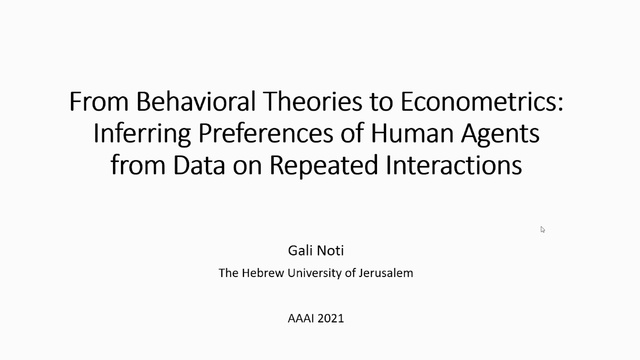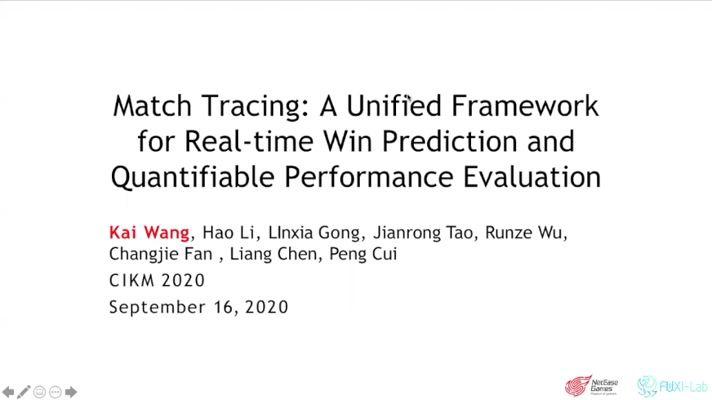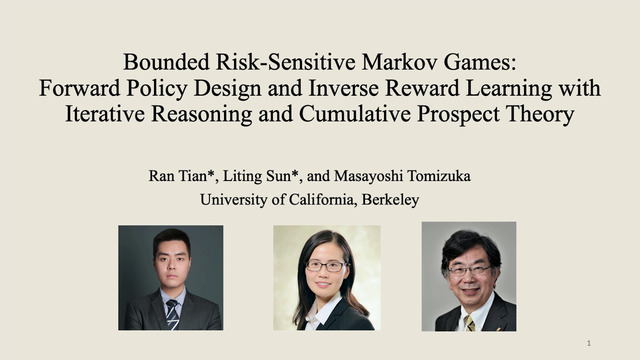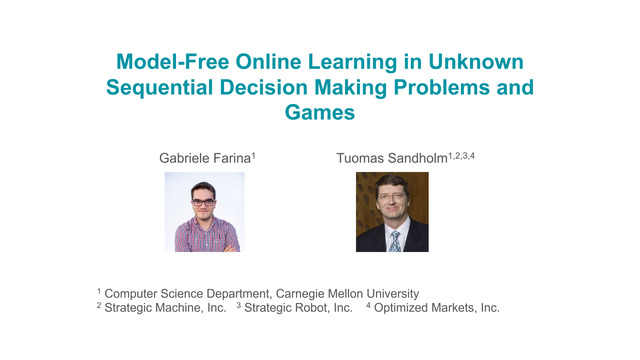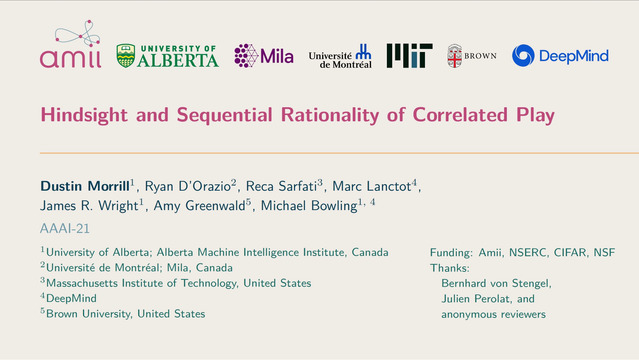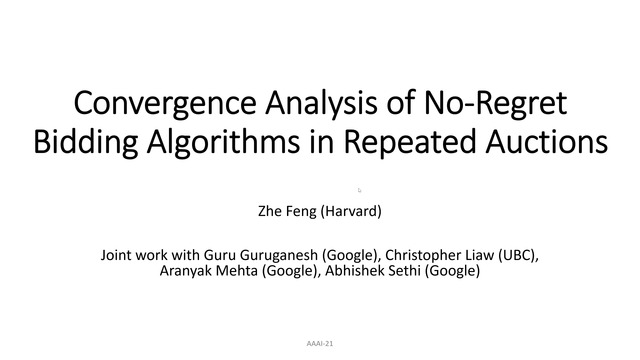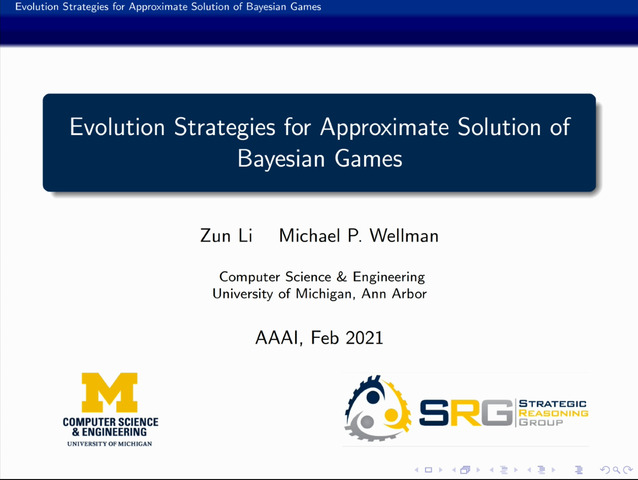Abstract:
We consider the problem of estimating preferences of human agents from data of strategic systems where the agents repeatedly interact. Recently, it was demonstrated that a new estimation method called "quantal regret" produces more accurate estimates for human agents than the classic approach that assumes that agents are rational and reach a Nash equilibrium; however, this method has not been compared to methods that take into account behavioral aspects of human play. In this paper we leverage equilibrium concepts from behavioral economics for this purpose and ask how well they perform compared to the quantal regret and Nash equilibrium methods. We develop four estimation methods based on established behavioral equilibrium models to infer the utilities of human agents from observed data of normal-form games. The equilibrium models we study are quantal-response equilibrium, action-sampling equilibrium, payoff-sampling equilibrium, and impulse-balance equilibrium. We show that in some of these concepts the inference is achieved analytically via closed formulas, while in the others the inference is achieved only algorithmically. We use experimental data of 2x2 games to evaluate the estimation success of these behavioral equilibrium methods. The results show that the estimates they produce are more accurate than the estimates of the Nash equilibrium. The comparison with the quantal-regret method shows that the behavioral methods have better hit rates, but the quantal-regret method performs better in terms of the overall mean squared error, and we discuss the differences between the methods.
